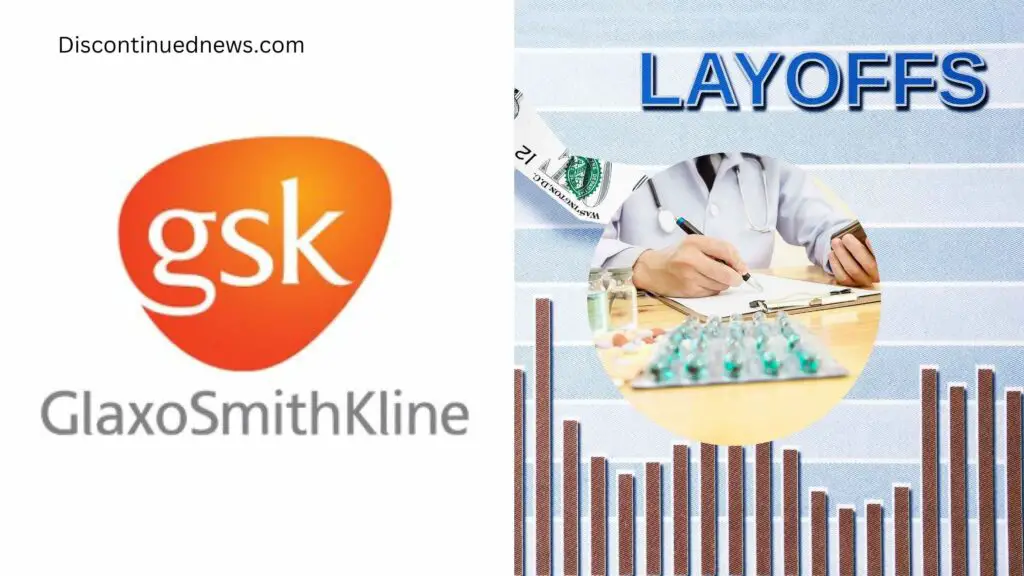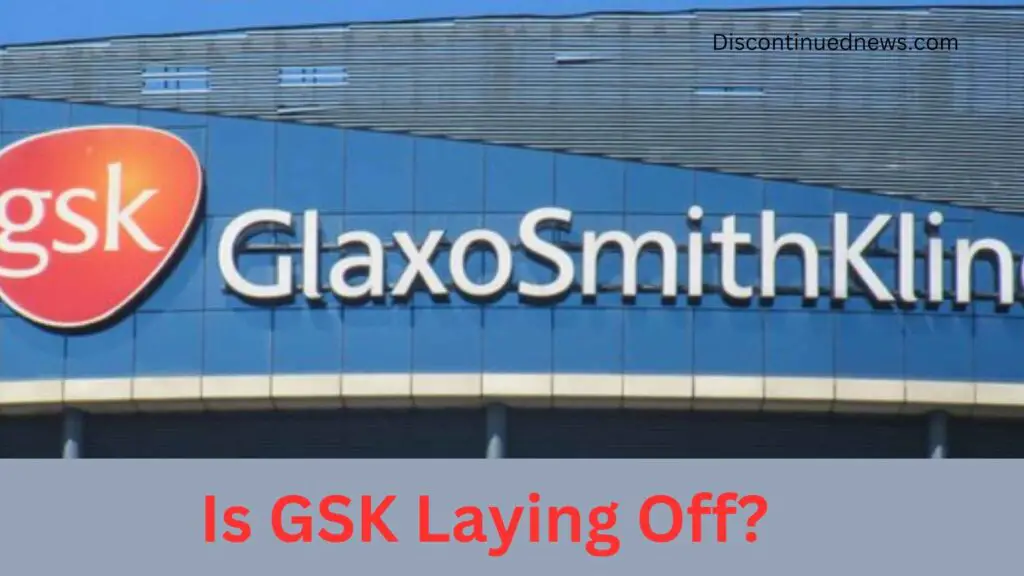Is GSK Laying Off? About one year after GSK’s consumer healthcare business started as Halon. The company planned to cut costs by letting go of many employees.
Many jobs in the U.K. and possibly thousands globally were cut this year, says The Guardian. Currently, Halon has about 1,700 employees in the U.K. and around 24,000 globally in 170 countries. Workers learned about the cuts in meetings in July. In August, the company revealed who was affected. Later, in September, the changes took place.
Haleon wants to save a lot of money, around $393 million, in the next three years. They are making changes to be better and more efficient. Haleon started last year with a lot of debt. But it became famous and got the top spot in a survey about respected pharmaceutical companies.
At the same time, Haleon’s old parent company, GSK, planned to sell some of its shares in Haleon to other big investors. This sale is worth a lot of money, around $1 billion. GSK had a part of Haleon even after they separated, but now they are selling some of it.
Pfizer also has some shares in Haleon, but they planned to sell them because it’s not strategic for them. Haleon made a lot of money in the first quarter of this year, around $3.91 billion.
GlaxoSmithKline decided to close its factory in Melbourne after 50 years. The factory made respiratory products, but GSK couldn’t find anyone to buy them. This means 300 employees were laid off last year. The factory in Boronia was GSK’s biggest one in the southern hemisphere.
GSK mentioned this happened in July when they were planning to create two new companies—one for research on the immune system, genetics, and new technology, and the other for consumer healthcare.
The Boronia site made high-volume products used in respiratory items. However, GSK feels it doesn’t need such specialized capabilities as it focuses on more innovative medicines. They plan to bring new drugs and vaccines to Australia in the future.
GSK is taking steps to help the staff during this change and has been discussing things with the teams and unions. The closure won’t affect the medicine supply in Australia since most products are for export.

GSK had already closed a manufacturing site in Sydney over the past four years, where they made children’s Panadol and Panadol. This was delayed a bit because of increased demand due to the COVID-19 pandemic.
In 2018, GlaxoSmithKline shared that it was going to make some changes, and now they’ve mentioned laying off around 650 jobs in the U.S.
This was a part of a bigger plan they talked about in July. Of the same year. About 100 of these jobs were from offices in Philadelphia and North Carolina, and the rest were sales positions. A spokesperson for GlaxoSmithKline, Mary Anne Rhyne, explained that the money saved from these job cuts would be used to support new products and boost research and development.
DiscontinuedNews is impartial and independent, and every day, we create distinctive, world-class programs, news, and content that inform, educate and entertain millions of people worldwide.
About GlaxoSmithKline (GSK)
GlaxoSmithKline is a big health company that works around the world. They have their main office in Brentford, London. The boss of the company is Emma Walmsley, and she’s special because she’s the first woman to lead such a big medicine company.
In 2020, GSK was busy making 40 new medicines and 17 new vaccines. That’s a lot!
They made a lot of money that year – about $34 billion in their cash.
GSK has many workers, around 94,000 of them, and they work in over 150 different countries. In the U.S., their main office is in a place called Philadelphia. They also have a special place in North Carolina where they do research.
What Is The History Of GSK?
GlaxoSmithKline, or GSK, began way back in 1715 as a little shop in London called Plough Court Pharmacy. Over time, it changed and grew through different combinations of companies.
GSK’s Timeline:
- In 1830, there was a drug house in Philadelphia called Smith & Gilbert.
- In 1842, Thomas Beecham started Beecham’s Pills in England.
- By 1856, Plough Court pharmacy became Allen & Hanburys.
- In 1880, American pharmacists Wellcome and Burroughs started Burroughs Wellcome & Company in London.
- In 1958, Glaxo Laboratories got Allen & Hanburys.
- In 1989, SmithKline Beckman and Beecham Group joined up to be SmithKline Beecham.
- In 1995, Glaxo and Wellcome merged.
- By 2001, SmithKline Beecham and Glaxo Wellcome joined forces officially to become GlaxoSmithKline.
- GSK works on vaccines, medicines, and health products. They’re big in making vaccines and medicines for breathing problems and HIV. GSK made about $24 billion from its medication in 2020.
GSK Product Recall
GSK had to recall some of its products because there were problems with them. These included things like weight loss products, vaccines, and inhalers for people with breathing issues.
Here are some of the times when GSK had to recall its products:
- In 2020, some children’s cough medicines had the wrong measuring cups. This could have led to kids getting too much treatment by accident.
- In 2018, they recalled some inhalers because there was a chance the foil strip inside was damaged. This could mean the inhaler wouldn’t give the right amount of medicine.
- In 2017, another batch of inhalers had a problem where the medicine might leak, giving people less treatment than they needed.
- In 2017, a meningitis vaccine was recalled as a precaution because there were worries about how it was made.
- In 2015, a flu vaccine was recalled because it might not be as strong as it was supposed to be, which could make it less effective.
- In 2015, more inhalers were recalled because the delivery system wasn’t working right, and people might not get enough doses.
- In 2014, GSK had to recall some weight loss products because they might have been tampered with, meaning they could have things in them that weren’t supposed to be there.
GSK Lawsuits: What’s Been Happening?
GSK has dealt with a bunch of lawsuits where people claim their products caused harm.
Zantac Lawsuits
Injuries: Cancer due to a contaminant called NDMA.
Status: GSK faced around 1,200 lawsuits by 2020, but as of March 2021, no decisions have been made.
Zofran Lawsuits
Injuries: Congenital disabilities.
Status: GSK faced 476 lawsuits in 2021, and the first big trial was set for October 2021.
PPI Lawsuits (Prevacid 24HR and Nexium 24HR)
Injuries: Kidney issues.
Status: Over 13,700 lawsuits pending, with the first big trial set for November 2021.
Paxil Lawsuits
Injuries: Suicidal thoughts and congenital disabilities.
Notable: GSK paid millions in verdicts and settlements, including $1.14 billion in 2010 for Paxil and pregnancy claims.
Avandia Lawsuits
Injuries: Strokes, heart attacks, and heart failure.
Notable: GSK settled over 10,000 lawsuits for $500 million in 2010 and set aside billions for future cases in 2011.
What Is The Future Of GSK?
New GSK, the big medicine company, has some plans for the next five years. They want to grow their sales and profits, and by 2026, they aim to make more than £33 billion. This growth will come from new vaccines and special medicines.
They are changing things up a bit. They’ll focus more on vaccines and special medicines and less on general medication. They expect to have around three-quarters of their sales from vaccines and special drugs by 2026. Available remedies will be there. But they’re streamlining it, meaning they’re making it more efficient.
Also, they’re separating from the consumer healthcare business, which is about everyday health products you find in stores. This separation is happening around mid-2022. The new company will have strong brands and is expected to grow. New GSK will keep a small part of it and sell the rest to strengthen its finances.
They’re thinking about the environment, being inclusive, and helping people, and they want to positively impact the health of more than 2.5 billion people by 2031. That’s a lot of people!
Overall, New GSK is planning to do things differently to become a better and more successful company.

Who Are The Competitors Of GSK?
GSK has a lot of top competitors globally. Let’s take a look at them:
- Roche: It is known for its medical innovations. Despite challenges in 2022, where some cancer drugs and COVID-19 treatments declined, products like Ocrevus and Hemlibra performed well.
- Bristol-Myers Squibb: It has contributed to healthcare for over a century. In 2022, their sales reached $46.16 billion. However, the loss of exclusivity for Revlimid affected their revenue.
- Sanofi: It provides healthcare solutions globally. Their global sales in 2022 approached $45 billion, with a focus on specialty care, vaccines, and general medicines.
- AstraZeneca: It specializes in major disease areas. The acquisition of Alexion in 2021 boosted their revenue to over $40 billion in 2022. They anticipated another year of double-digit revenue growth in 2023.
- Pfizer: It is a big medicine company and will be at the top in 2023. They make medicines and vaccines for various health areas. In 2022, their sales reached a whopping $100.3 billion, making it a record year for them. They had success with their Covid-19 vaccine, Comirnaty, which played a big part in this achievement.
AbbVie, Johnson & Johnson, Merck & Co, and Novartis are also GSK’s top competitors. As we all know, the pharmaceutical industry is highly competitive, with companies striving to develop innovative medicines and vaccines to contribute to better global health.
The Bottom Line
In the end, the GSK layoffs have been a significant event, impacting the lives of many employees. It’s always tough when people lose their jobs, and it can create uncertainty for those affected. Companies sometimes make these decisions to adapt to changing circumstances, but it’s essential to remember the human side of it. Job losses are more than just numbers; they’re about individuals and families facing challenges. During such times, support and understanding play a crucial role. As we reflect on this situation, let’s hope for the affected employees to find new opportunities and for GSK to navigate its path forward responsibly.
